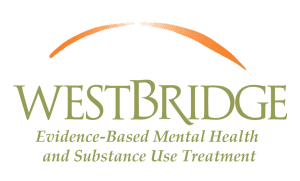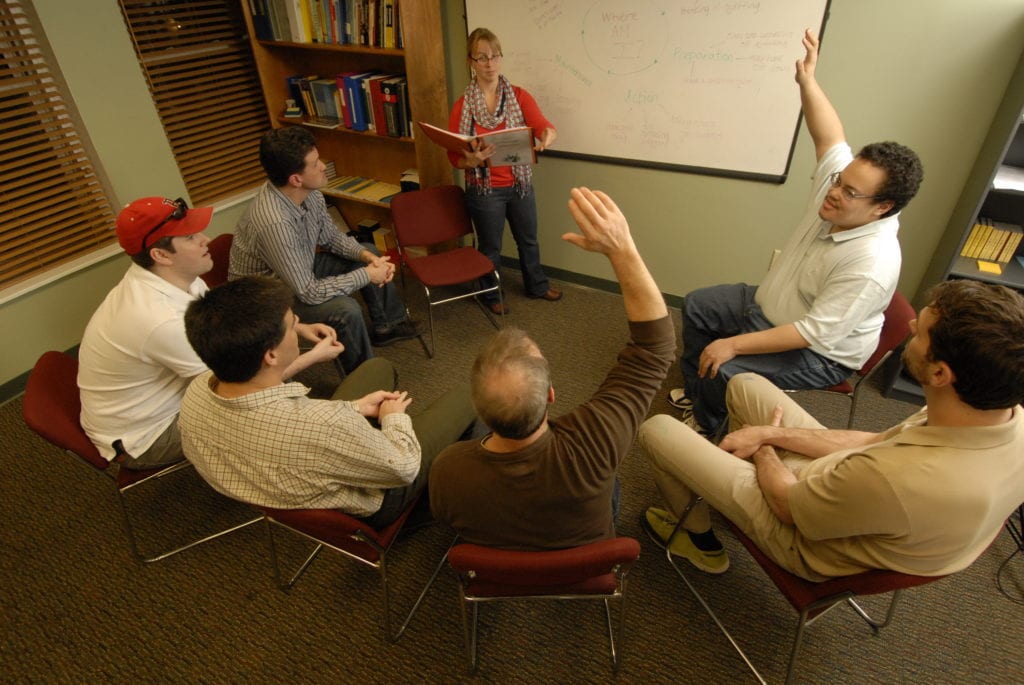At WestBridge, we are committed to providing optimal care in a truly integrated dual diagnosis treatment program. Our family-centered, evidence-based treatment for adult men who are experiencing symptoms of a co-occurring mental illness and substance use disorder is truly individualized.
Far from the stigmatized approach to ‘rehab,’ dual diagnosis treatment as WestBridge puts participants first and supports their needs with the aid of a consistent care management team that fosters an atmosphere of trust and respect.
At WestBridge, we realize family understanding and support is the foundation for each man’s success. Through research and collaboration, we developed an evidence-based Family Education and Support System that helps families understand what happens when people with mental health disorder symptoms, such as hallucinations, anxiety, delusions, depression or mood swings, adds substance use to the mix.
Family members meet once a week, either in person, by phone or through the use of videoconferencing, to discuss educational materials and hear about progress made on individualized treatment agendas created by the participant and his treatment team.
Dual Diagnosis Treatment Programs Utilize Various Therapeutic Techniques
Our dual diagnosis treatment programs specialize in the following types of mental illness and their associated symptoms, when coupled with a drug or alcohol addiction:
- Thought Disorders (including Schizophrenia, Schizoaffective Disorder)
- Mood Disorders (including Bipolar Disorder, Major Depression
- Anxiety Disorders
- Post Traumatic Stress Disorder
Throughout our dual diagnosis treatment center, our team members will utilize a variety of evidence-based practices to assist in the program of recovery. These include:
- Cognitive Behavioral Therapy – Cognitive behavioral therapy helps identify and modify distorted and unhelpful thoughts and behaviors that underlie symptoms of co-occurring mental illness and substance use disorders. Therapeutic techniques focus on ways to change negative thought patterns and resultant behaviors.
- Medication Management – WestBridge monitors and records each man’s results throughout the treatment process, involving the participant, their families and their clinical team in decision making during each stage. Our medical team employs a caring and thoughtful approach to each participant’s wellness and response to treatment.
- Motivational Interviewing – Motivational interviewing is a goal-oriented, participant-focused process that engages men in the treatment process, decreases ambivalence and encourages increased personal drive.
Community Settings Used In Dual Diagnosis Treatment Programs
WestBridge treats adult men who experience co-occurring mental health symptoms and substance use disorders. We do this simultaneously, in the same setting, and by the same team of clinicians. WestBridge offers services in two treatment settings:
We have residential programs for adult men (18 and older) in Manchester, NH. We also offer community-based outpatient services.
We understand that many individuals are ambivalent about treatment, and about having co-occurring / dual disorders in general. Our goal, and our proven strength, is to help adult men work through and overcome these uncertainties. WestBridge’s integrated treatment model is particularly well suited for men who want to build on their strengths and live in the community. Another core component of our service approach is family involvement. WestBridge educates and supports families who have a loved one with mental health and substance use disorders, and who want to relinquish the role of crisis responder and regain the role of family member.
As men in our residential dual diagnosis treatment programs develop confidence and strength, the care management team will provide opportunities for community-based treatment. The team models the Assertive Community Treatment approach used in our outpatient programs. In this model, team members help participants develop and practice skills they need in order to interact positively with their communities. Specialists in the areas of housing, finances, employment, symptom management, medical care, and family life will work with men and families to smooth the transition into regular daily living. Their services are available 24 hours a day, seven days a week, which frees family members from having to provide crisis intervention.







